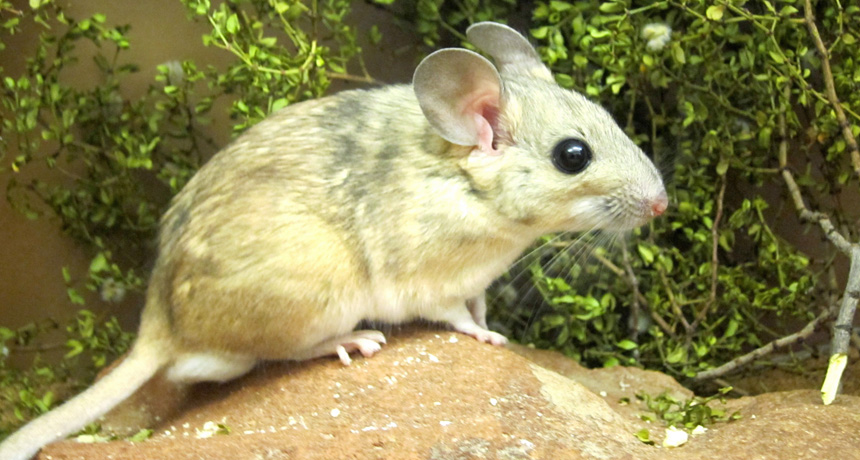Gut microbes help packrats eat poison

A packrat's gut microbes help the animal survive after eating toxins from plants such as creosote and juniper, a new study shows.
Kevin Kohl/Univ. of Utah

A packrat's gut microbes help the animal survive after eating toxins from plants such as creosote and juniper, a new study shows.
Kevin Kohl/Univ. of Utah